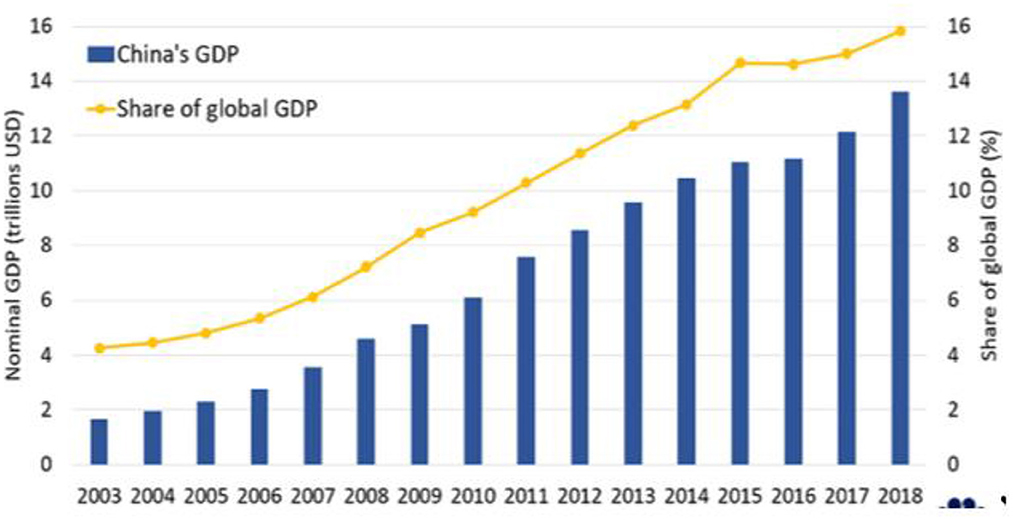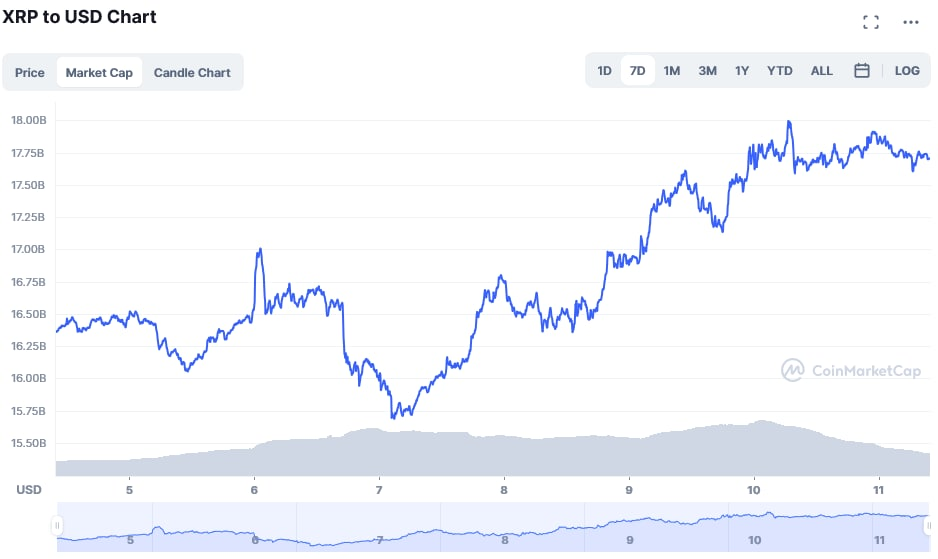Taiwan Dollar's Rise: Implications For Economic Policy Changes

Table of Contents
Factors Contributing to the Taiwan Dollar's Appreciation
Several key factors have contributed to the recent appreciation of the Taiwan dollar. Analyzing these factors is crucial to understanding the current economic climate and formulating effective policy responses.
Strong Export Performance
Taiwan's robust export sector, a cornerstone of its economy, plays a significant role in strengthening the TWD.
- Increased global demand for Taiwanese tech products: The global appetite for semiconductors, electronics, and other high-tech products manufactured in Taiwan remains exceptionally high. This strong demand directly translates into increased foreign currency inflows, boosting the TWD.
- Dominance in the global semiconductor supply chain: Taiwan's dominance in the semiconductor industry, particularly through companies like TSMC, makes it a crucial player in the global tech ecosystem. This critical role reinforces the demand for the TWD.
- Positive trade balance contributing to currency appreciation: Taiwan's consistent positive trade balance further strengthens the TWD. The surplus of exports over imports increases the demand for the Taiwanese currency in international markets.
Foreign Direct Investment (FDI) Inflows
Significant FDI inflows are another key driver of the TWD's appreciation. Taiwan's attractive investment climate continues to attract considerable foreign capital.
- Attractive investment climate for foreign companies: Factors such as a skilled workforce, advanced infrastructure, and a stable political environment make Taiwan an attractive destination for foreign investors.
- Government initiatives to promote FDI: The Taiwanese government actively works to attract FDI through various incentives and policies, further strengthening the TWD.
- Strong intellectual property protection: Robust intellectual property rights protection reassures foreign investors, encouraging continued investment and supporting the TWD.
Global Capital Flows
Global economic uncertainties often lead to capital flight towards perceived safe haven currencies, including the TWD.
- Global economic instability affecting capital flows: Periods of global economic instability often see investors seeking refuge in more stable economies, leading to increased demand for the TWD.
- Taiwan's strong economic fundamentals attract foreign investment: Taiwan's strong economic fundamentals, including a high savings rate and low public debt, make it an attractive destination for capital during times of uncertainty.
- Safe-haven status of the TWD amidst global uncertainty: The TWD's reputation as a relatively safe haven currency contributes to its appreciation during periods of global risk aversion.
Economic Implications of a Stronger Taiwan Dollar
The appreciation of the Taiwan dollar has significant implications across various sectors of the Taiwanese economy.
Impact on Exports
A stronger TWD makes Taiwanese exports more expensive in international markets, potentially harming competitiveness.
- Reduced export competitiveness leading to decreased sales: Higher prices can lead to decreased demand for Taiwanese products in global markets, potentially impacting sales and revenues.
- Potential loss of market share to competitors with weaker currencies: Competitors with weaker currencies gain a price advantage, potentially leading to a loss of market share for Taiwanese exporters.
- Need for strategies to maintain export competitiveness: Taiwanese businesses need to adapt and implement strategies to offset the impact of the stronger TWD, such as enhancing product value, improving efficiency, or exploring new markets.
Impact on Imports
Conversely, a stronger TWD makes imports cheaper, benefiting consumers through lower prices.
- Increased purchasing power for consumers: Consumers enjoy increased purchasing power as the cost of imported goods decreases.
- Lower import costs for businesses: Businesses benefit from lower input costs, potentially improving profitability and competitiveness.
- Potential inflationary pressures if import costs rise despite the strong TWD: While cheaper imports are generally positive, increases in global commodity prices can negate this benefit and potentially contribute to inflationary pressures.
Impact on Inflation
The net effect of the stronger TWD on inflation requires careful monitoring.
- Balancing the effects of cheaper imports and reduced export revenues: Policymakers must carefully weigh the deflationary pressure from cheaper imports against potential inflationary pressures from reduced export revenues and increased import costs.
- The role of domestic demand in influencing inflation: Domestic demand plays a significant role in determining overall inflationary pressures. Increased domestic consumption can offset deflationary effects from cheaper imports.
- Government policies to manage inflation effectively: Appropriate government policies are crucial in managing inflation, including monetary policy adjustments and fiscal measures.
Necessary Adjustments to Economic Policy
To mitigate the potential negative effects and capitalize on opportunities presented by the strong Taiwan dollar, Taiwan needs to adjust its economic policies.
Diversification of Export Markets
Reducing reliance on specific markets is crucial to mitigate the impact of currency fluctuations.
- Exploring new export markets to reduce reliance on existing ones: Diversifying export markets reduces the vulnerability to fluctuations in any single market.
- Investment in market research and expansion strategies: Investing in market research and developing targeted expansion strategies is crucial for identifying and penetrating new markets.
- Supporting small and medium-sized enterprises (SMEs) in international expansion: Government support for SMEs is essential in enabling them to participate in and benefit from international expansion efforts.
Promoting Domestic Demand
Stimulating domestic consumption can compensate for potential declines in exports.
- Government policies to stimulate consumer spending: Government policies aimed at boosting consumer confidence and spending are crucial for driving domestic demand.
- Encouraging investment in domestic industries: Investing in domestic industries and supporting local businesses creates jobs and stimulates economic growth.
- Improving infrastructure to support domestic growth: Modernizing infrastructure strengthens the domestic economy and supports sustained growth.
Monetary Policy Adjustments
The central bank plays a crucial role in managing exchange rate volatility and inflation.
- Central bank intervention in the foreign exchange market: The central bank may intervene in the foreign exchange market to manage the TWD's exchange rate and mitigate excessive volatility.
- Interest rate adjustments to control inflation: Interest rate adjustments are a key monetary policy tool used to manage inflation and maintain price stability.
- Maintaining exchange rate stability within a target range: The central bank may aim to maintain the Taiwan dollar within a target range to avoid excessive fluctuations and maintain economic stability.
Conclusion
The appreciation of the Taiwan dollar presents both significant opportunities and challenges for Taiwan's economy. A strong TWD benefits consumers but can negatively impact export competitiveness. A multifaceted approach is needed, encompassing export market diversification, domestic demand stimulation, and careful monetary policy management. Proactive strategies focusing on the Taiwan dollar and its implications are vital for ensuring the continued success and stability of the Taiwanese economy. Understanding the dynamics of the Taiwan dollar is not merely an economic issue but a cornerstone of long-term economic planning and prosperity for Taiwan.

Featured Posts
-
 Bitcoin Madenciliginin Gelecegi Son Mu Devam Mi
May 08, 2025
Bitcoin Madenciliginin Gelecegi Son Mu Devam Mi
May 08, 2025 -
 Xrps 400 Surge Whats Next For The Crypto
May 08, 2025
Xrps 400 Surge Whats Next For The Crypto
May 08, 2025 -
 The Importance Of Trustworthy Crypto News Sources In 2024
May 08, 2025
The Importance Of Trustworthy Crypto News Sources In 2024
May 08, 2025 -
 Should You Invest In Xrp After Its 400 Price Increase
May 08, 2025
Should You Invest In Xrp After Its 400 Price Increase
May 08, 2025 -
 Investing In The Future Identifying The Countrys Top Business Growth Areas
May 08, 2025
Investing In The Future Identifying The Countrys Top Business Growth Areas
May 08, 2025
